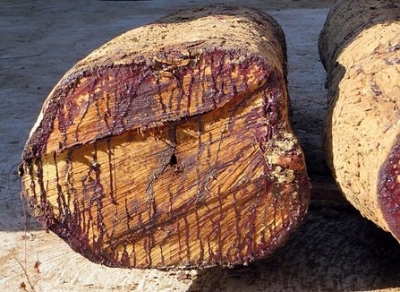
Abuja, Oct 24 (IANS) Chinese infrastructure and mining ventures in West Africa have penetrated previously undisturbed forest and conservation areas, fragmenting habitats and undermining the ecological integrity of vital landscapes, a report has highlighted.
Citing a report by the American think tank Atlantic Council titled ‘Chinese Demand for Timber and Wildlife in West Africa: Responding to the Environmental and Social Impacts’, Uganda-based media outlet PML Daily detailed that these developments often weaken community-based forest management practices and marginalise local communities.
“Environmentalists in West Africa have raised serious concerns over widespread deforestation driven by the growing demand from Chinese suppliers operating across the globe. Recently, the Ogun State government in Nigeria sealed five Chinese companies and arrested several officials for allegedly assaulting and inflicting bodily harm on enforcement officers carrying out their duties,” the report mentioned.
“Earlier, these companies had been sealed for committing serious environmental violations, including improper waste disposal, open waste burning, and refusal to engage government-recognised waste collectors. Such incidents are not isolated to Nigeria but are increasingly common across the entire West African region,” it emphasised.
According to the report, the primary concern is illegal logging — especially of rosewood and other valuable timber across Nigeria, Ghana, Gambia, Mali, Cote d’Ivoire, Sierra Leone, and Liberia, which has led to widespread deforestation, including in protected areas.
Driven largely by Chinese demand, it said, rosewood has become the world’s most trafficked illegal wildlife product by both value and volume, exceeding ivory and rhinoceros horn combined.
“Ironically, the environmental costs have far outweighed the economic benefits. Large-scale land acquisitions and infrastructure projects have led to forest conversion, eroded community land rights, and endangered numerous species,” the report highlighted.
“In countries such as Ghana, Liberia, Nigeria, Côte d’Ivoire, and Sierra Leone, Chinese firms are frequently associated with both legal and illicit timber operations. In addition, Chinese-backed agribusiness ventures — particularly in rubber and palm oil — have resulted in extensive land acquisitions and deforestation, undermining traditional land tenure systems and disrupting local livelihoods,” it added.
The report stated that the evidence from across West Africa shows how China’s unchecked exploitation of forests, minerals, and wildlife has inflicted severe environmental damage and destabilised local communities.
It further said that with China strengthening its diplomatic and economic control, West African nations must urgently come together and take a firm stand.
“It is high time these countries confront Beijing directly and demand an immediate halt to the destruction of their natural resources. If China refuses to cooperate, West African governments must raise the matter at global forums, ensuring that the world recognises and responds to this growing ecological and humanitarian crisis,” the report noted.
–IANS
scor/as




